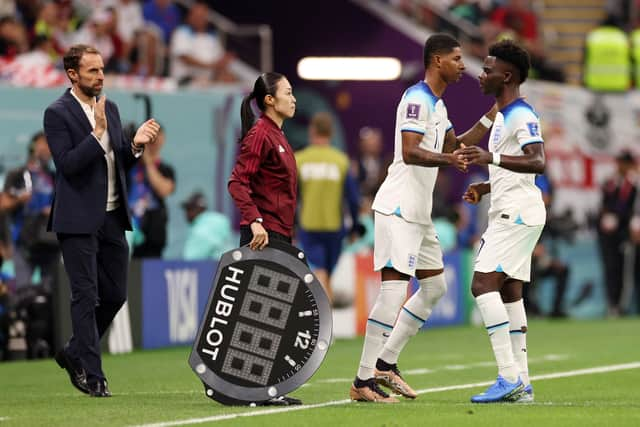Why is there so much stoppage time at the end of some of the matches at the 2022 World Cup finals in Qatar?
and live on Freeview channel 276
The 2022 World Cup finals in Qatar will be remembered for many weird, wonderful and not so wonderful things - one of them being the adding on of lengthy stoppage time at the end of both the first and second halves.
England kicked off their World Cup campaign with a convincing 6-2 victory over Iran. Lost amongst the unfolding of the eight goal thriller was the fact the referee added almost 30 minutes of stoppage time at the end of both halves.
Advertisement
Hide AdAdvertisement
Hide AdLengthy stoppage time has not been limited to just England games. Saudi Arabia had to defend a 2-1 lead over Argentina until the final whistle was eventually blown in the 104th minute.
So why all of a sudden are we seeing matches run well beyond the established 90 minutes? There’s no one variable wholly responsible for all of the stoppage time but rather a combination of factors, including referees being under strict instructions from Fifa to stamp out “unnatural lost time”.
Why is there so much stoppage time at the 2022 World Cup?
Fifa has introduced a new directive designed to negate what it describes as “unnatural lost time” in a match. Unnatural lost time can manifest itself in a variety of different ways such as substitutions; time wasting; goal celebrations; referees consulting the Video Assistant Referee (VAR); treatment of injured players and when players receive yellow and red cards.
Iconic former referee and incumbent chairman of the FIFA referees committee, Pierluigi Collina warned before the World Cup started in Qatar that no one should be surprised if they see fourth officials consistently announce a “big number” concerning stoppage time at the end of both halves.
Advertisement
Hide AdAdvertisement
Hide Ad“We told everybody don’t be surprised if they see the fourth official raising the electronic board with a big number on it, six, seven or eight minutes. If you want more active time, we need to be ready to see this kind of additional time given,” said the former Italian World Cup referee.


“Think of a match with three goals scored. A celebration normally takes one, one-and-a-half minutes, so with three goals scored, you lose five or six minutes,” he added.
Fifa’s new directive is dividing opinions with some pundits lauding the logic behind the move but others say they are unconvinced. One game that was decided in stoppage time was when after Welsh goalkeeper, Wayne Hennessey was sent off in the 86th minute against Iran. The scoreline was 0-0 when Hennessey was shown a red card but Iran scored goals in the 98th and 101st minutes to snatch three points.
